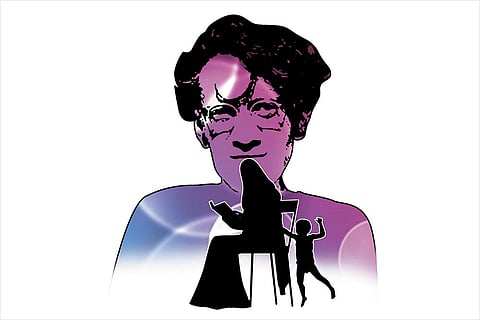Manto was inspirational without being heroic. His flawed self made him real, attainable. His unflinching honesty, courage, free-spiritedness—is what we need today. I instinctively felt a film on Manto would allow me to respond to our present situation without being didactic. If Manto was relevant then, he’s even more so now. We are still grappling with issues of freedom of speech and struggles of identity. Seven decades later, we remain inextricably mired in caste, class, race and religion. Manto rose above those and understood the universality of human experience.
At a personal level, when I began reading Manto, I realised why he seemed so familiar. I grew up with a Mantoesque father who’s just as blunt, free-spirited, misunderstood and a misfit. I felt I knew the man behind the writer. Manto is an ode to all such mavericks who tell the truth through their art, through their life. I wanted to invoke that ‘Mantoiyat’—the desire to be honest, fearless and free-spirited—that exists in all of us.
From the beginning, I saw Nawazuddin as Manto...his lived-life eyes were perfect to portray Manto’s many contradictions. Rasika was also my first and only choice for Safia, Manto’s wife. To find Shyam, his best friend, took the longest: most actors saw it as a “second lead”! My casting director, Honey Trehan, had the unenviable task of finding people to bring alive real-life characters like Ashok Kumar, K. Asif , Faiz Ahmad Faiz, Naushad sahab and many more. He has found such amazing actors—thanks to him, we have a fantastic ensemble cast. And I’m overwhelmed that so many actors did small cameos for free, simply to support the film and for their admiration of Manto. Rishi Kapoor as a sleazy producer or Paresh Rawal who, despite our political differences, supported both Firaaq and Manto. Or Gurdas Maan, as a distraught father (not easy to imagine him as that!), or Javed Akhtar, making his debut as a witness defending Manto in court!
